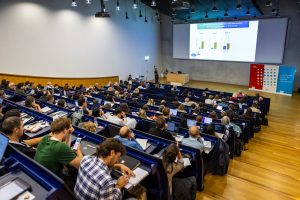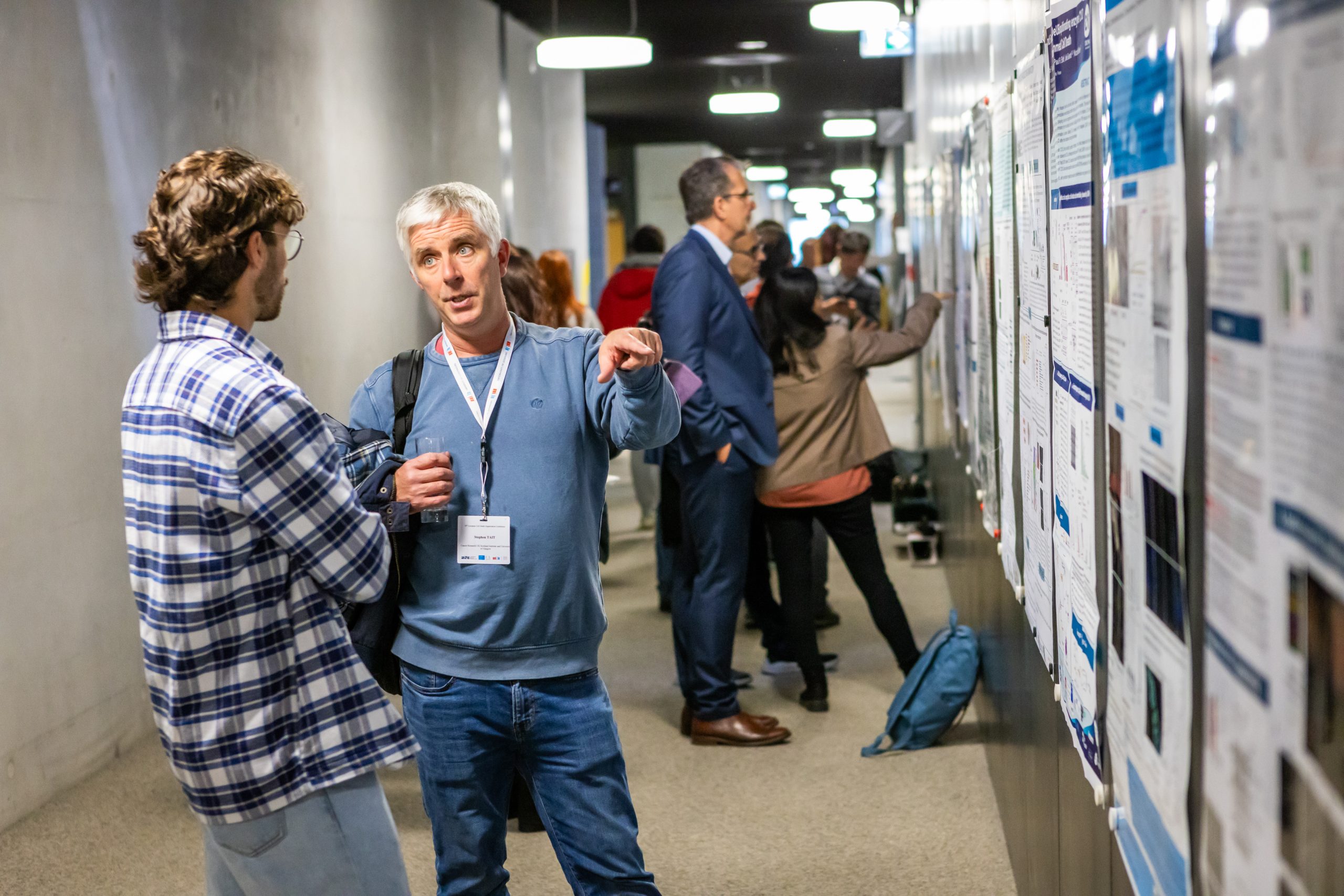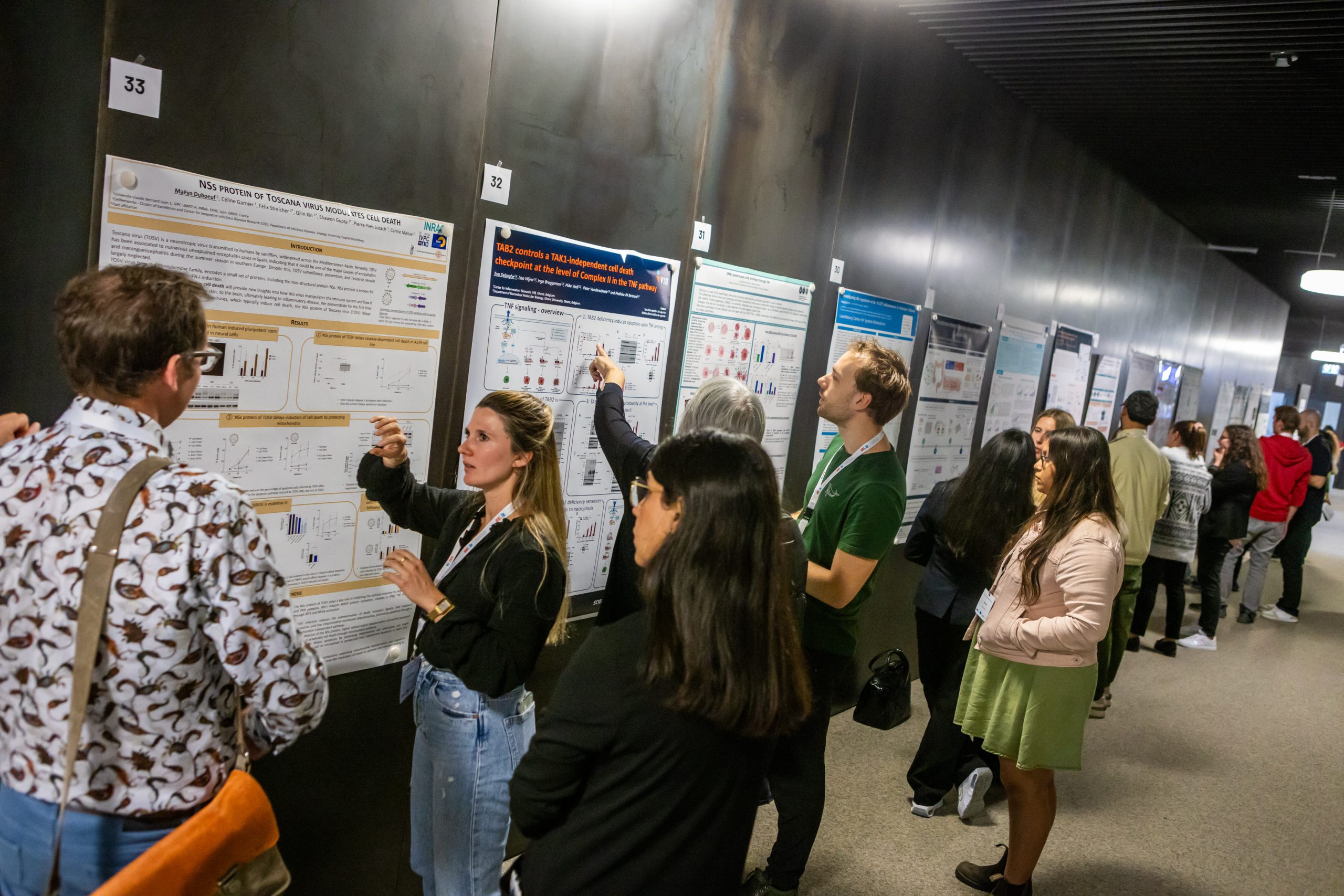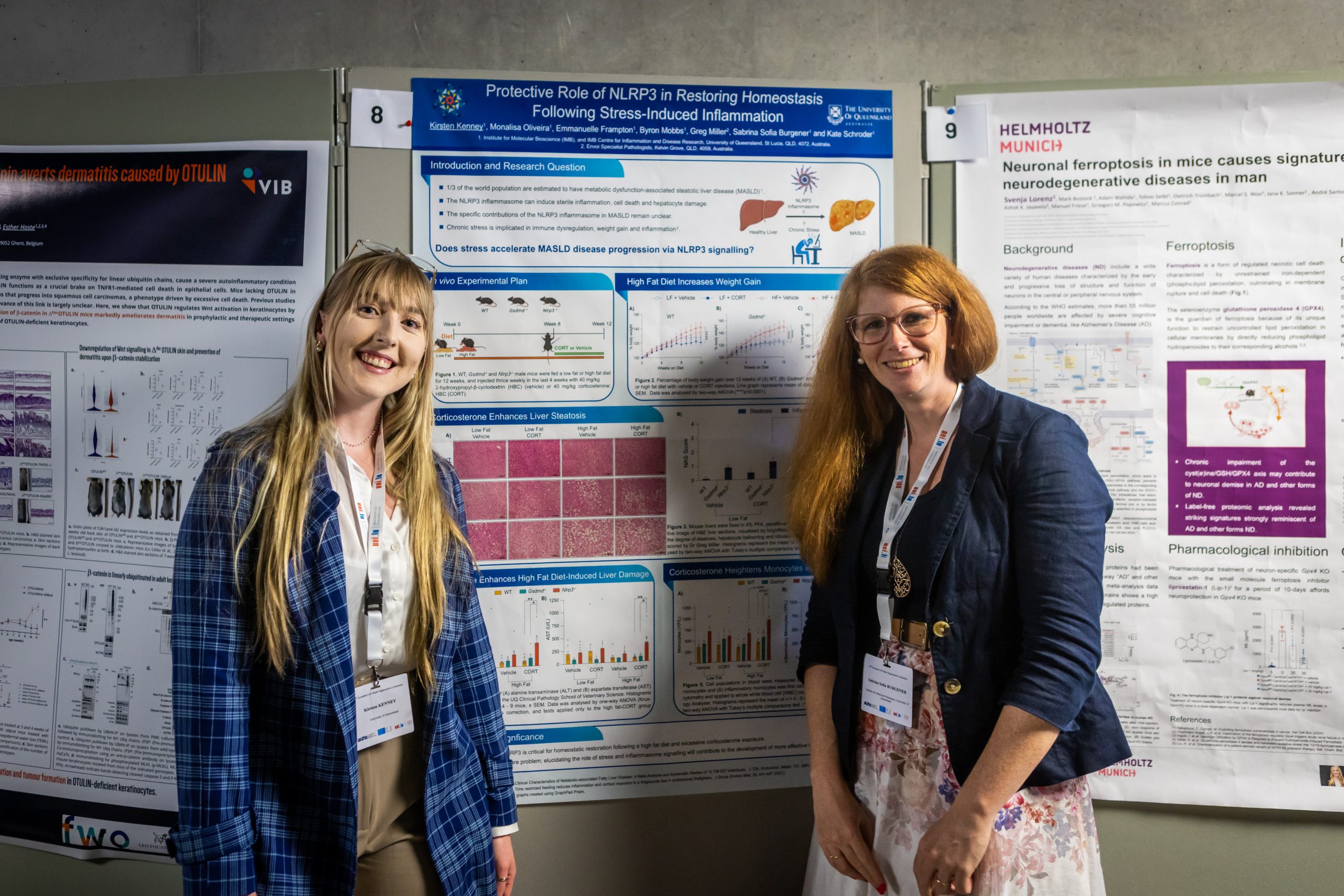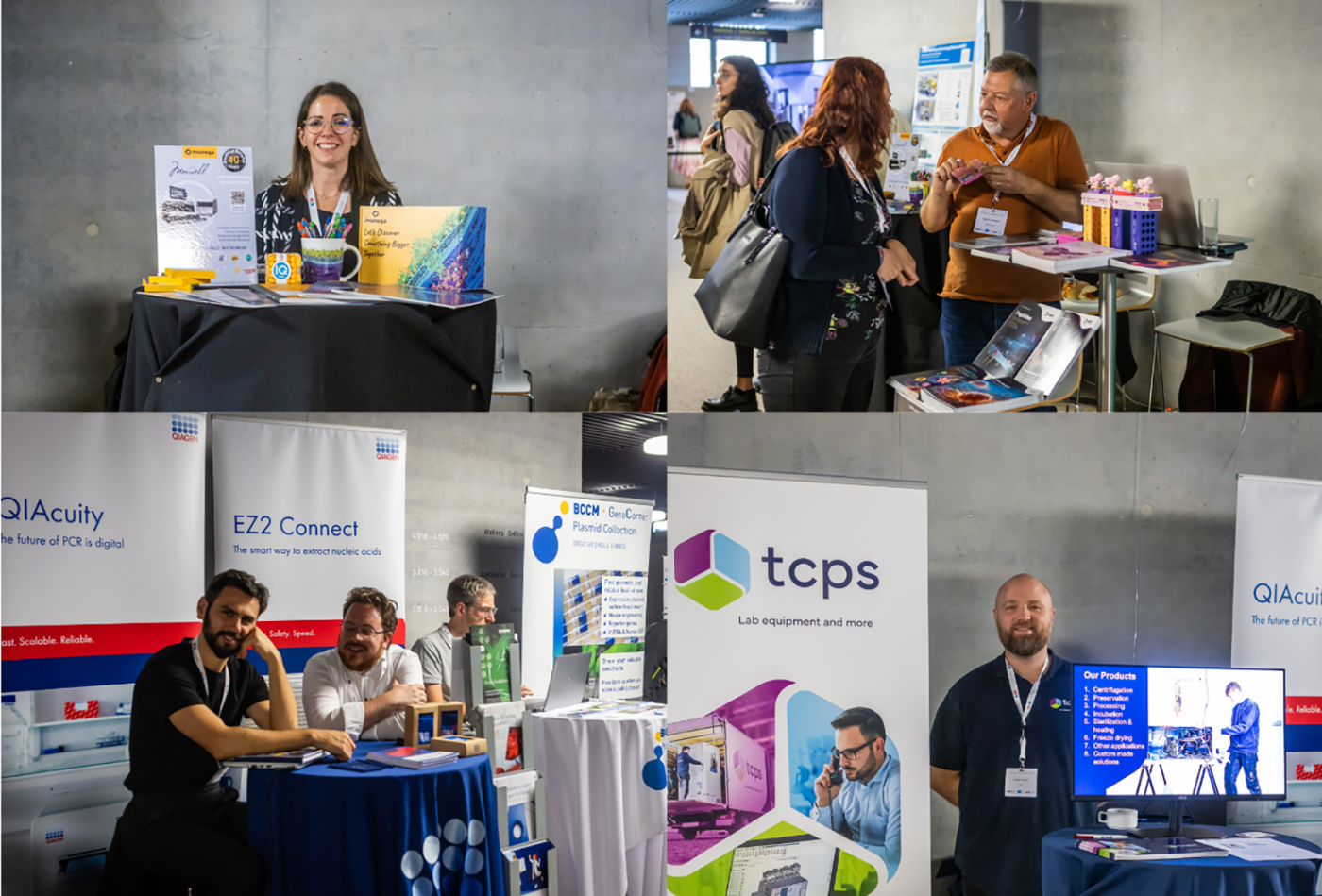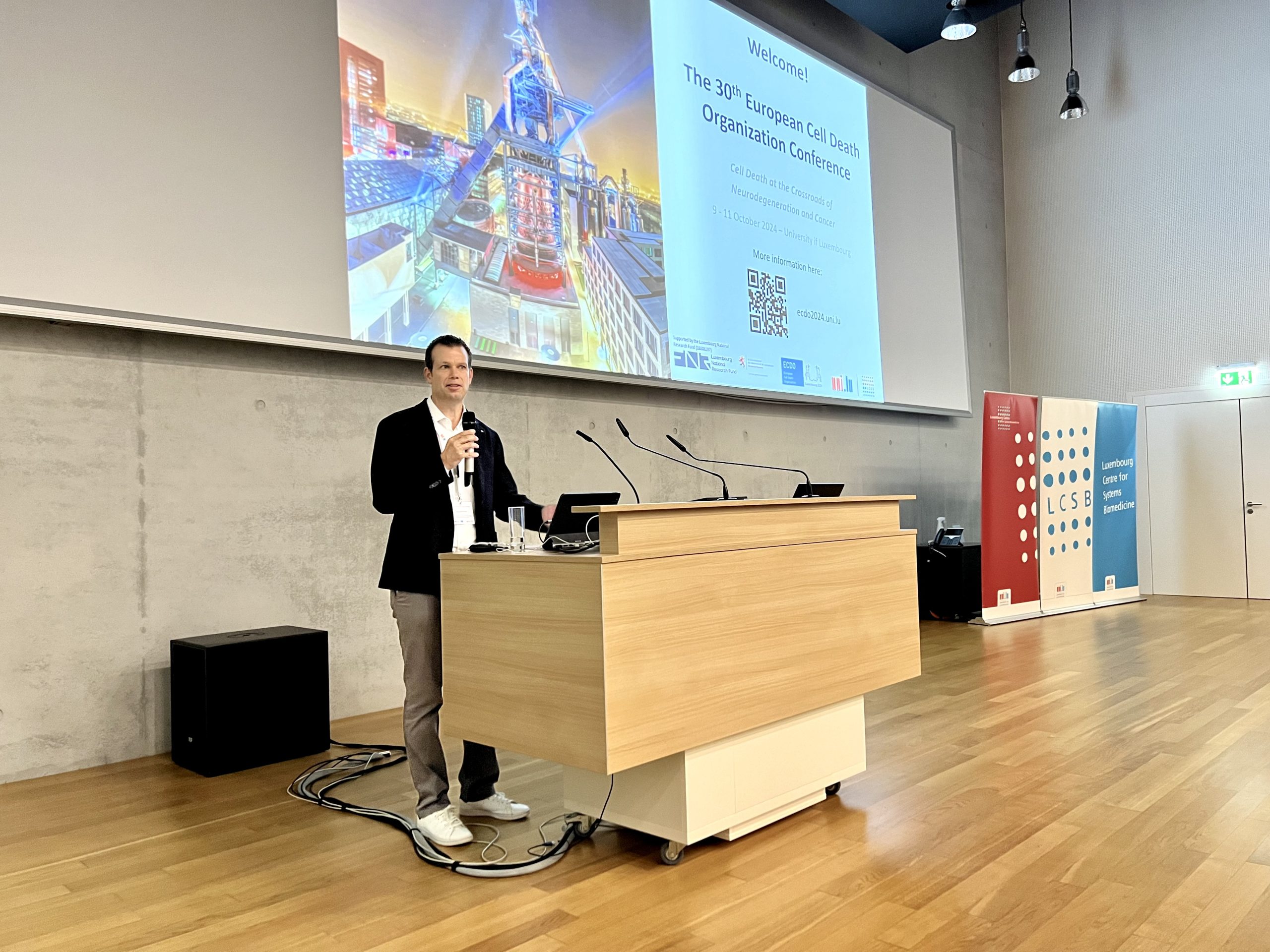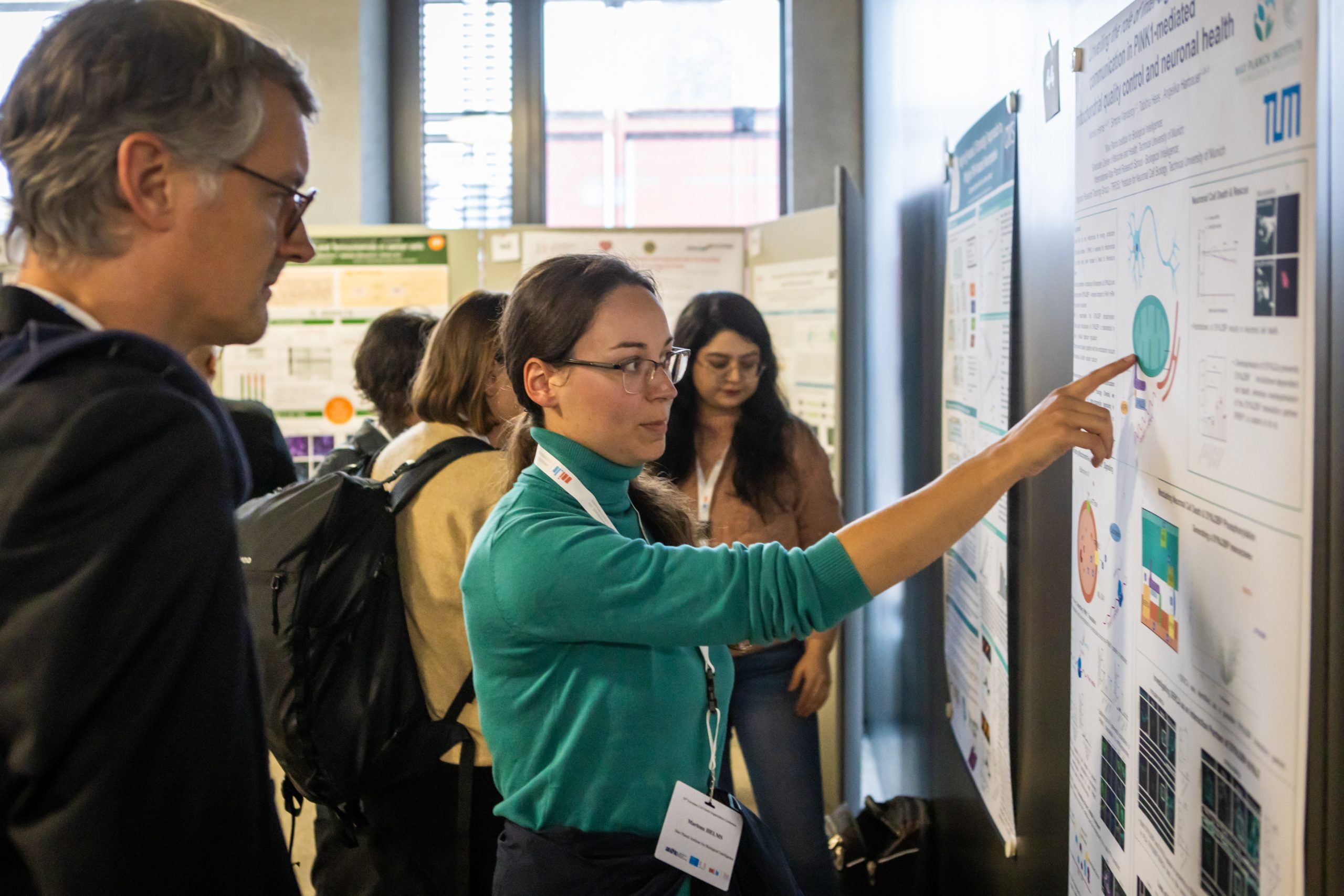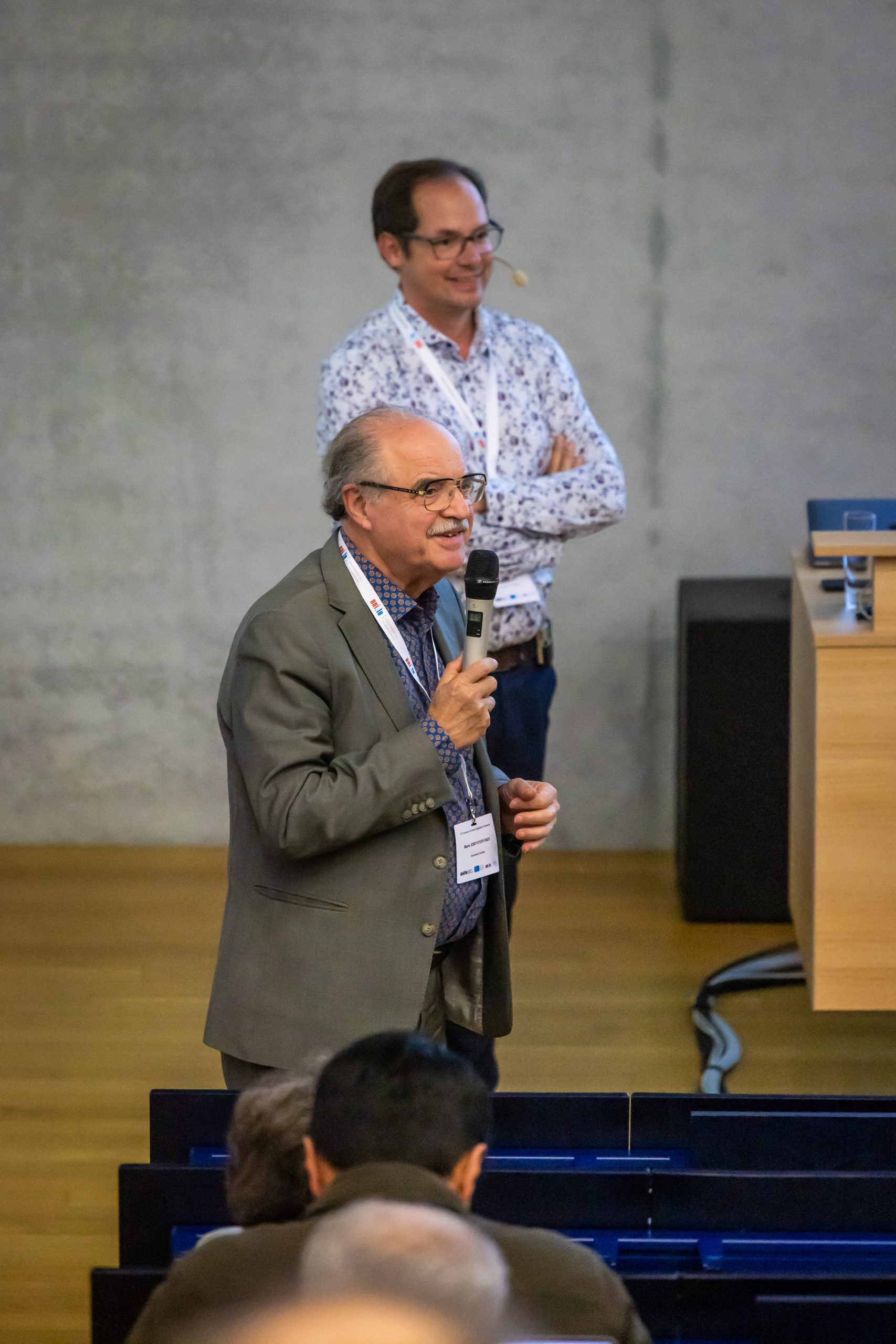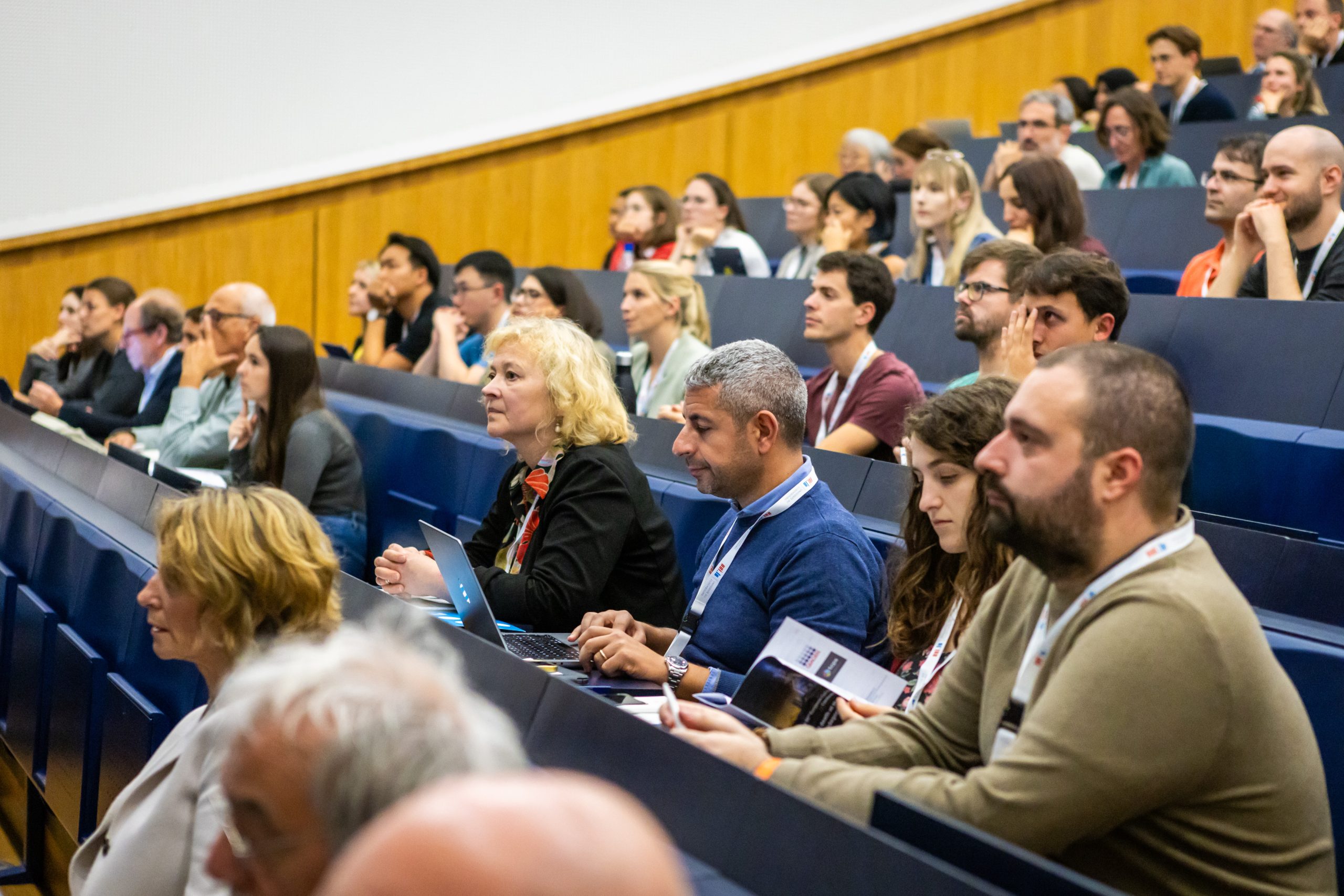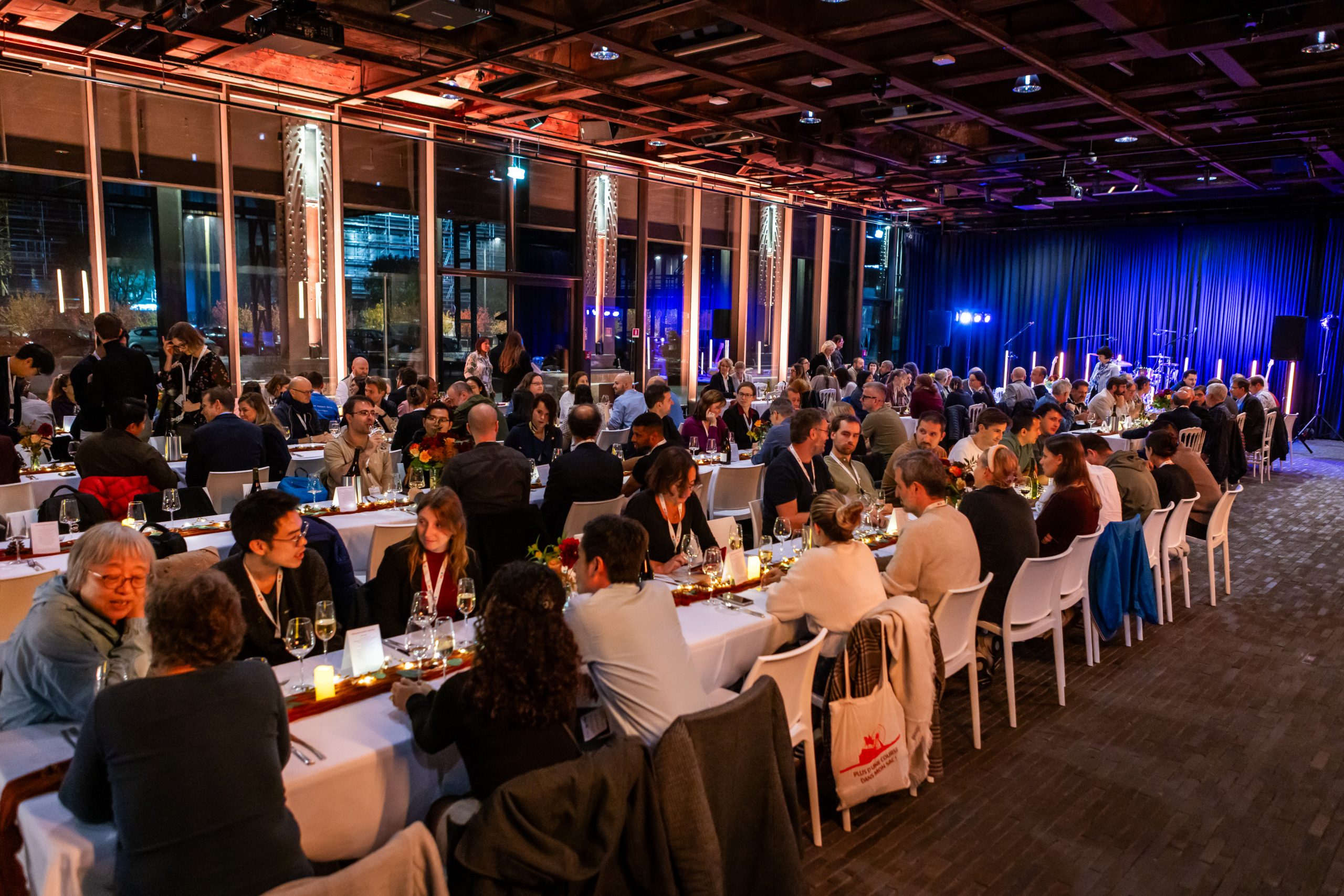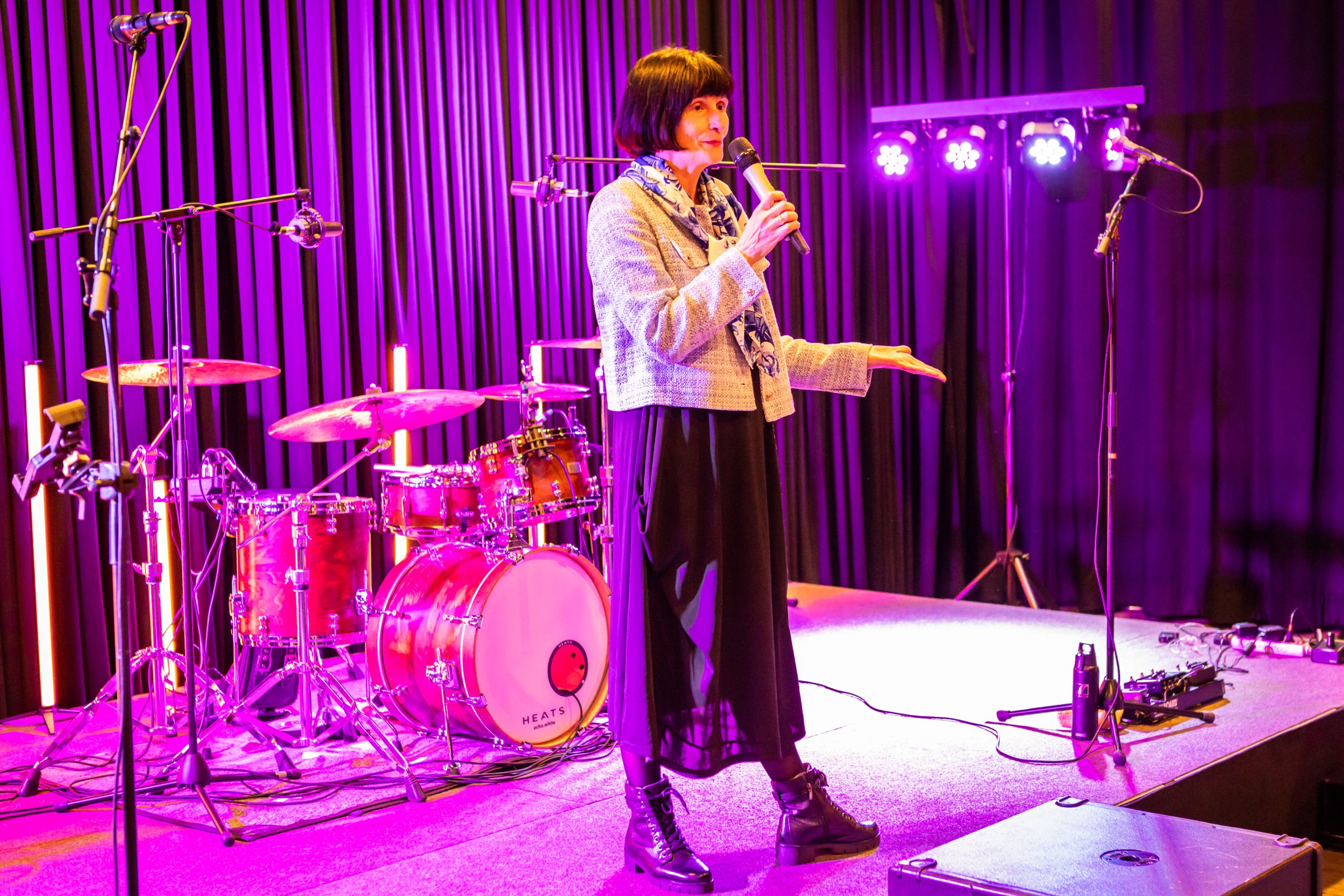From 9 to 11 October 2024, 250 researchers, clinicians, and students from around the world gathered at the University of Luxembourg’s Belval Campus for the 30th European Cell Death Organization (ECDO) Conference. Hosted by the Luxembourg Centre for Systems Biomedicine (LCSB), this year’s edition explored the latest research on cell death mechanisms, focusing on their implications for neurodegeneration and cancer
Programmed cell death – indispensable for life
During normal development, tightly orchestrated programmed cell death occurs in a spatially and temporally restricted manner to establish proper composition and functioning of the body, such as the neural architecture of the brain. Activation of a specific signaling pathways can lead to cell death by a variety of mechanisms, including apoptosis, necroptosis, pyroptosis, ferroptosis and autophagy-dependent cell death. “It is important to understand the exact mechanisms at play,” explains Prof. Dirk Brenner, head of the Immunology & Genetics group at the LCSB and the Luxembourg Institute of Health who co-organised the conference. “Only if we know what triggers their activation and which biochemical pathways are involved, we can exploit this knowledge to develop treatments for human diseases.”
New frontiers in cell death research
With earliest discoveries dating only from the late 60s, cell death research is still a very dynamic field. Last year, a new scientific publication on cell death was published every 22 minutes. “It is amazing how much new knowledge is created around the world on cell death,” says ECDO president Prof. Inna Lavrik. “We were particularly keen to see the new insights on ferroptosis at this ECDO conference, a new type of cell death recently discovered.” Ferroptosis is an iron-dependent form of cell death resulting from the accumulation of peroxidised lipids implicated in many different diseases, which makes it an interesting target for therapeutic applications.
To underline the important role of the discovery, two prizes were awarded during the conference to the pioneers in ferroptosis research: Prof. Brent Stockwell from Columbia University received the Cell Death & Differentiation Prize 2024, sponsored by a leading journal in the field, while Prof. Marcus Conrad from the Helmholtz Centre in Munich received ECDO Prize 2024. Besides ferroptosis, the conference discussed new directions in cell death research and how they can be linked to the development of novel therapeutic strategies to treat cancer, neurodegenerative and autoimmune diseases. In this context, Prof. Junying Yuan from Shanghai Interdisciplinary Research Center on Biology and Chemistry has been awarded the prestigious Jürg Tschopp Prize 2024, for his research demonstrating the path from studying molecular mechanisms to the development of therapies.
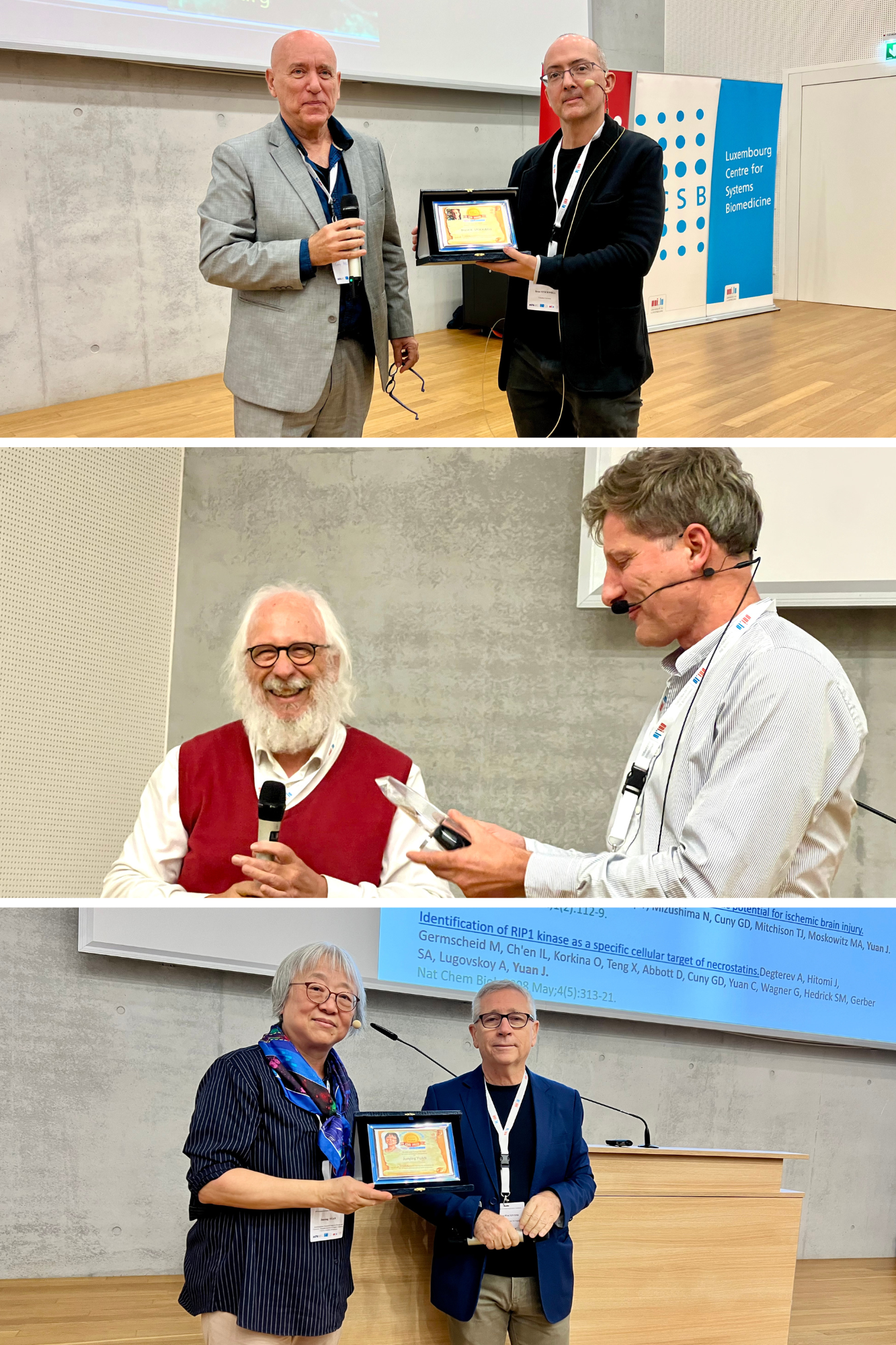
Uniting fields: From neurodegeneration to cancer metabolism
This year’s theme of the conference offered a comprehensive look on the various forms of cell death and their role in diseases like Alzheimer’s and Parkinson’s, as well as cancer. “Cancer cells are notoriously good at avoiding programmed cell death, which is why reactivating these processes is at the core of many anti-cancer therapy developments,” explains Prof. Michael Heneka, director of the LCSB and co-organisers of the conference. “On the contrary, we see cells dying prematurely in neurodegenerative diseases which we need to rescue for instance by trying to block these pathways. I am convinced that both fields can learn a lot from each other.” With scientific contributions from researchers and clinicians alike, the conference aimed to bridge the gap between basic research and clinical application. Conference presentations showed that first compounds targeting cell death pathways are now being tested on humans in clinical trials for COVID-19 and cancer.
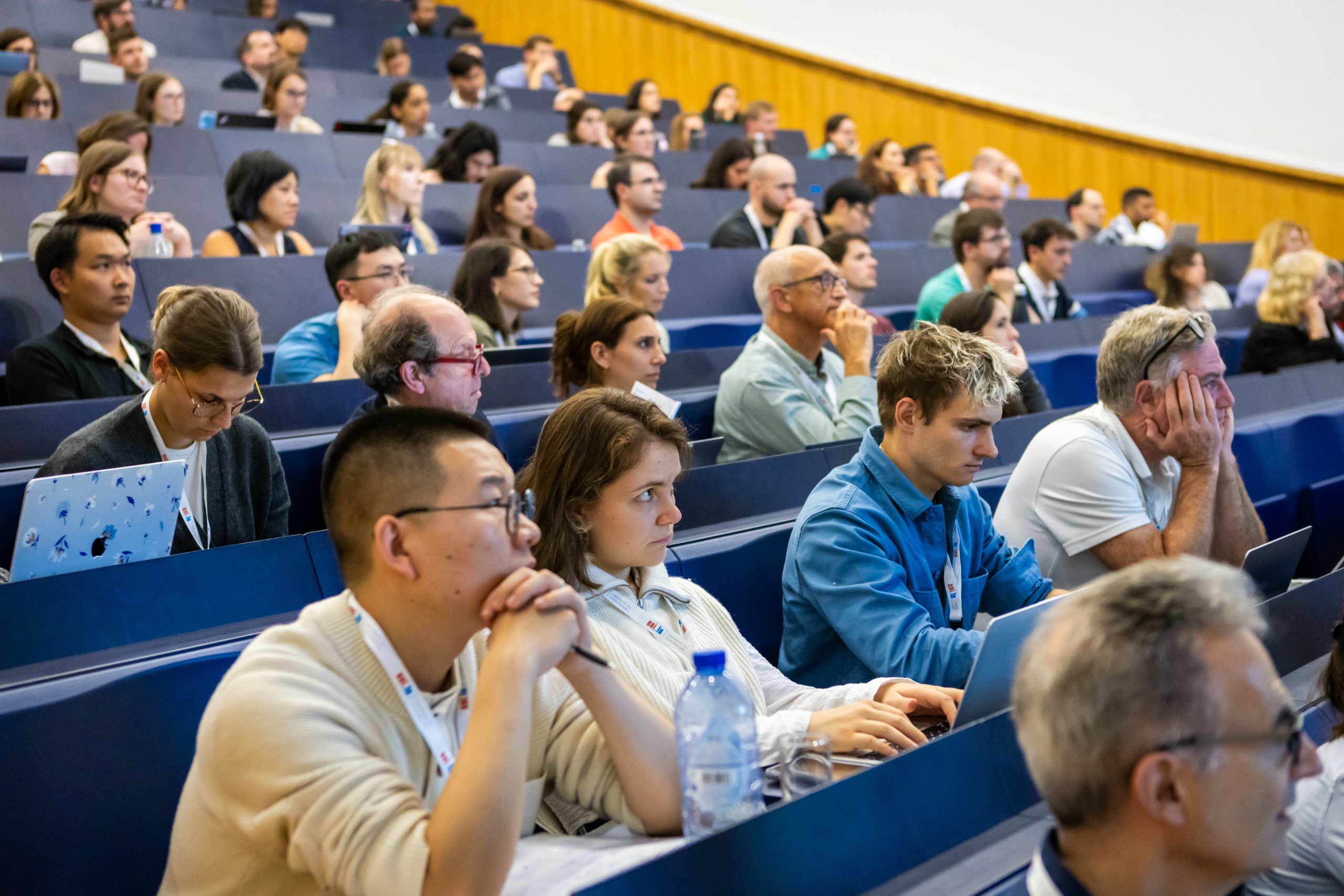
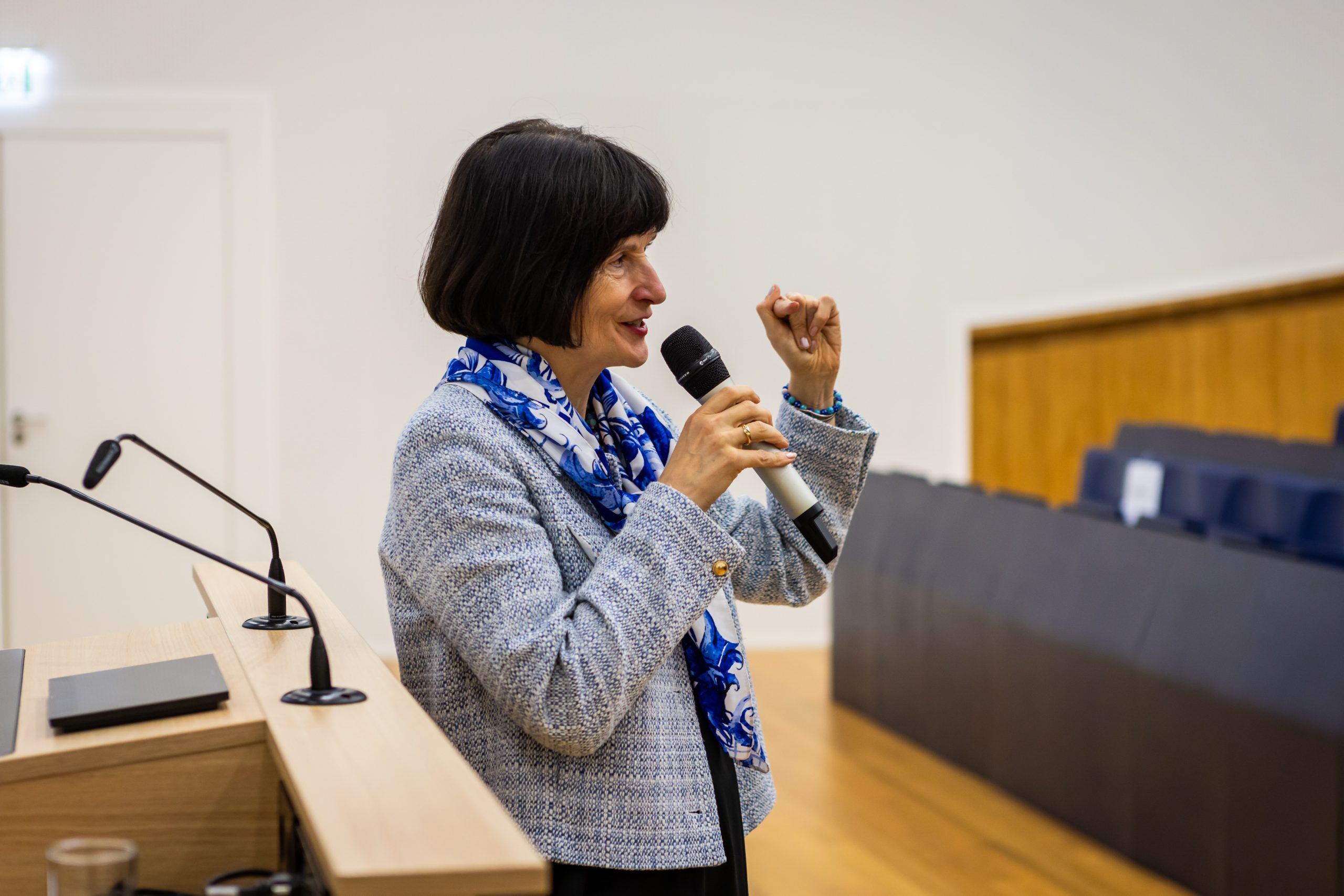
A platform for scientific exchange and collaboration
The three-day event brought together some of the most prominent voices in cell death research, with presentation by 26 internationally renowned experts as well as poster presentations and flash talks by young academics. The interdisciplinary nature of the meeting, accompanied by an industry exhibition and social events, fostered lively discussions and promoted future collaborations. “This year’s conference was a huge success, not just in terms of participation, but in the quality of scientific exchanges,” concludes ECDO president Prof. Inna Lavrik. “Cell death research has made enormous strides in recent years, and we were able to present new breakthroughs that will undoubtedly shape the future for patients.”
Pictures: ©Olivimages and University of Luxembourg
